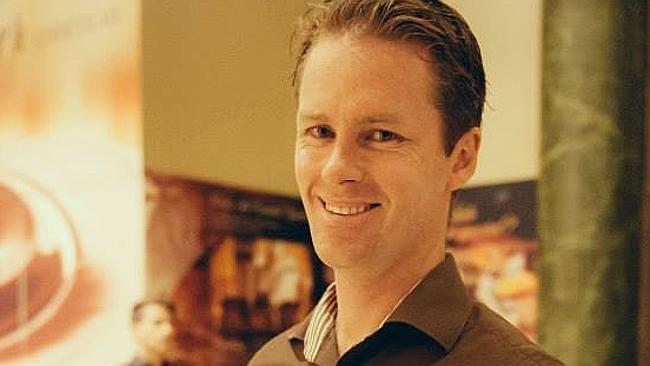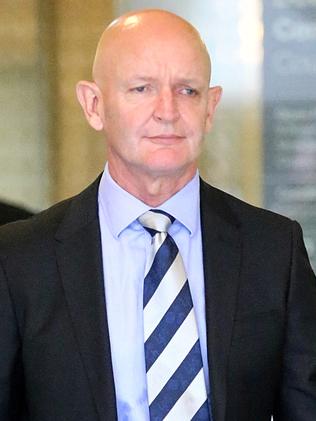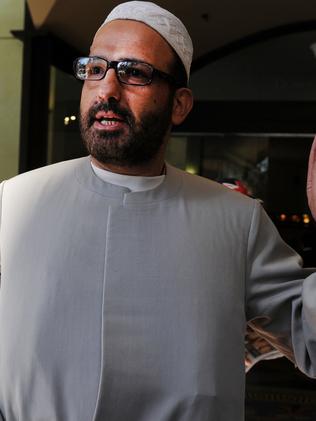Sydney siege inquest: Why police didn’t storm the cafe earlier
POLICE have been forced to address why they waited until Tori Johnson had been executed at point-blank range before they raided the cafe.

POLICE could have raided the Lindt cafe before gunman Man Haron Monis fired any shots or anyone was hurt but instead they continued with a policy of “contain and negotiate” because of a bomb threat, an inquest has heard.
The decision for police to avoid following a “Deliberate Action” plan in favour of the policy of “contain and negotiate”, is among several strategies to be analysed during the inquest into the deaths arising from the siege.
Superintendent Allan Sicard said it was understood at the time of the siege that Monis had a bomb in his backpack and the 18 hostages’ lives would therefore be at risk if police stormed the building.
Supt Sicard told the inquest that time could sometimes negate the risks faced by hostages, a lesson he learnt during other critical operations.
“We had a man armed with shotgun, wearing a backpack with a believed explosive device in it, making hostages hold a flag with Islamic writing on it … that’s (what we were) responding to,” he said.
The Tactical Operations Unit (TOU) stormed the cafe after Monis executed cafe manager Tori Johnson at point-blank range, bringing the 17-hour ordeal to an end just after 2am on December 16, 2014.
Counsel for the family of Mr Johnson, Gabrielle Bashir, SC this morning cross-examined Supt Sicard, who was forward commander until midday on the day of the siege, and quizzed him on the triggers of the plan.


She asked him if the police decision to “contain and negotiate” until an emergency action plan was activated by “serious injury or death” had failed the “innocent person who has been seriously injured or shot”.
“Assume a trigger that only activates in the event of actual shooting or serious injury of a hostage … do you accept that such a trigger, the actual shooting or serious injury of a hostage, is one that fails to protect that person from serious injury?” Ms Bashir said.
Supt Sicard agreed but said the situation was more complex because of the “believed” threat of a bomb.
“You’re asking me if that hostage is killed, (if) we failed to protect that hostage,” he said.
“In the cold context of the question I’d say we haven’t protected that person.
“But there are multiple other people in that room as well who have to be taken into consideration.
“In fairness I don’t think you can ask the question that isolated.”
Supt Sicard said if police charged in early and killed Monis, it might have caused the suspected explosive devices to go off, unnecessarily killing hostages.
“If we went in early on with the real threat of a bomb and we took out the offender and the bomb exploded, we (would have hurt) all of those people,” he said.
Supt Sicard said the incident “never escalated to a level (he) thought we needed to implement an emergency action plan” over the two hours he was forward commander.
Triggers for the emergency plan, he understood, were the death or serious injury of a hostage, or the imminent threat of either of those.
Ms Bashir pointed out that prior to killing Mr Johnson, Monis had fired shots at hostages and missed, which she suggested proved an imminent threat.
She questioned why that incident had not prompted a police raid.
“There’s a difference between actual shooting and serious injury and the threat of serious injury to a person isn’t there?” Ms Bashir asked.
“There is, yes,” Supt Sicard responded.
Supt Sicard was the first witness to take the stand yesterday during the police management stage of the inquest. He told the inquest how police tried to avoid a repeat of the chaos that gripped New York after the September 11 attacks.
Supt Sicard was also in command during the Mosman collar-bomb case in 2011 and said the experience, combined with what authorities had seen and learnt during the September 11 World Trade Center attacks, taught him invaluable lessons that he relied on in leading the response during the siege.
The inquest before NSW Coroner Michael Barnes is looking into the deaths arising from the siege, which began when Monis entered the cafe on December 15, 2014 and took 18 people hostage.
Lindt cafe manager Tori Johnson and barrister Katrina Dawson were killed in the siege.
Over the past few weeks, siege survivors took the stand one by one, to relive the horror they each experienced at the hands of Monis. Many still bear deep psychological scars and have been unable to return to work, and some had been diagnosed with a host of mental health issues including Post Traumatic Stress Disorder (PTSD) and depression.
The inquest will also examine the police response with the findings expected to be delivered later this year.
Senior NSW police will continue to give evidence next week with Commissioner Michael Fuller expected to be the first to take the stand on Tuesday.
The police who have so far given evidence were deemed “uncontroversial” witnesses.
The case has been adjourned until Tuesday so the parties involved in the inquest can use the rest of the week to discuss what can and can’t be addressed in the public sessions.
The adjournment comes after it was agreed most of the police witnesses will give their evidence in public hearings but any issues relating to methodology must only be discussed behind closed doors.
Counsel assisting the coroner Jeremy Gormly SC said there were methods of dealing with sieges, violent situations and terrorism activity that had been developed over time and “must be kept in effect secret”.
“We know there may be other lone wolves like Monis…” he told the court.




